
Lot 13
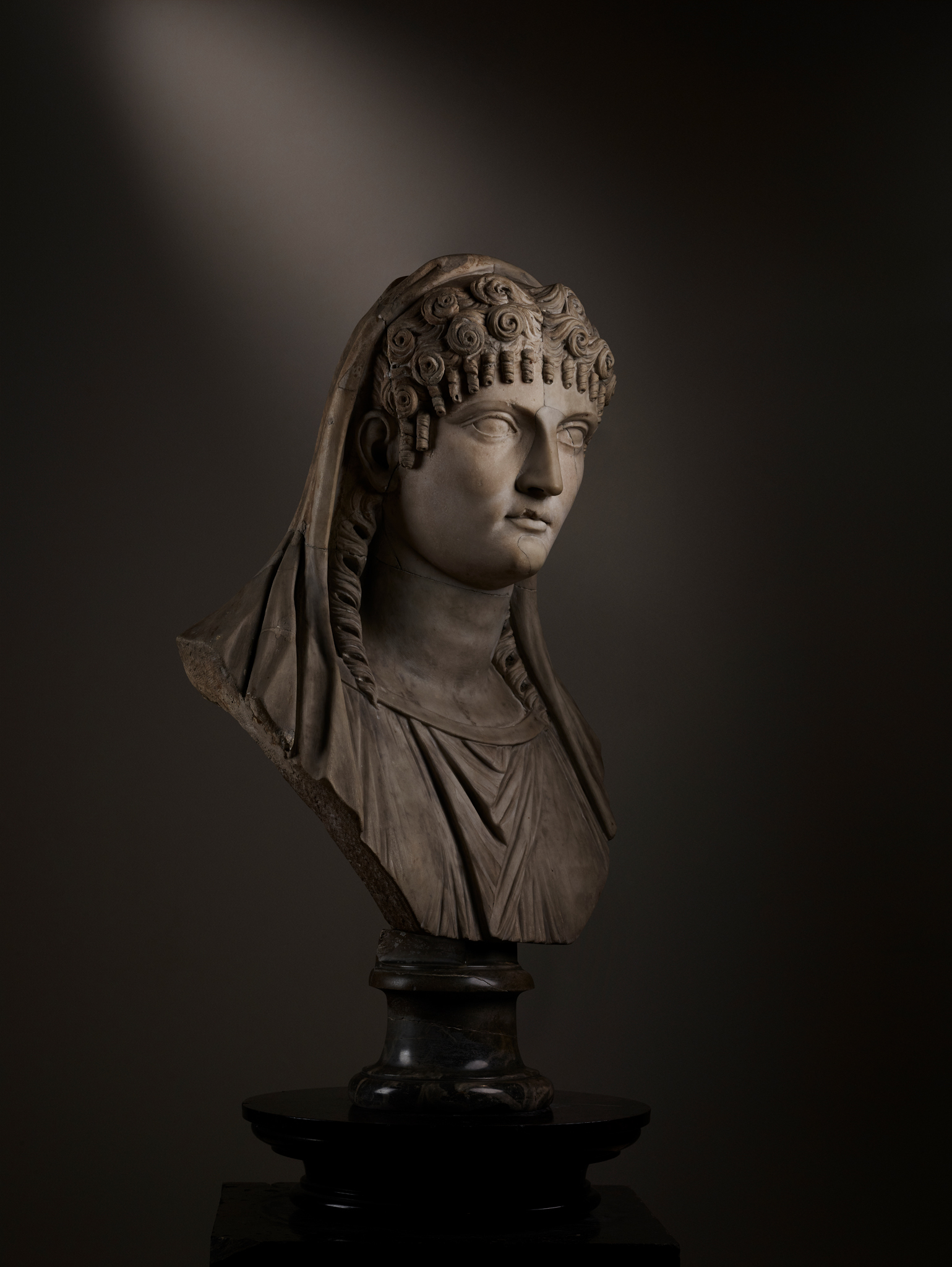
ROMAN MONUMENTAL MARBLE PORTRAIT HEAD OF POMPEIA PLOTINA
TRAJANIC PERIOD, C. 110 - 120 A.D.
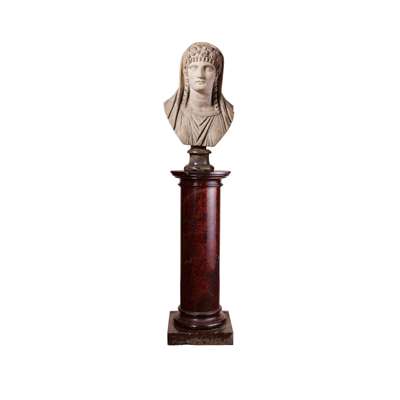
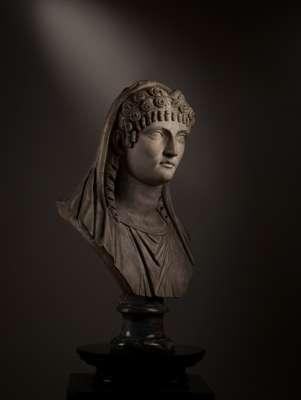
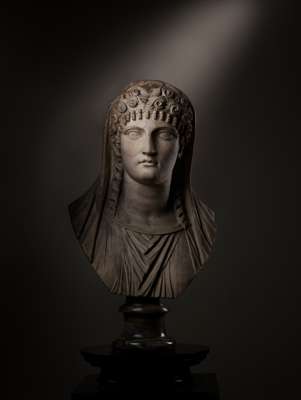
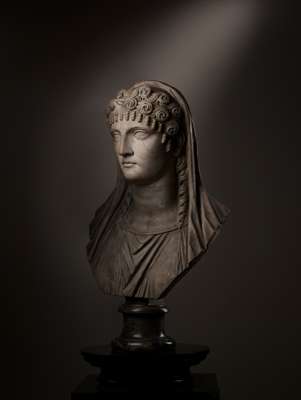
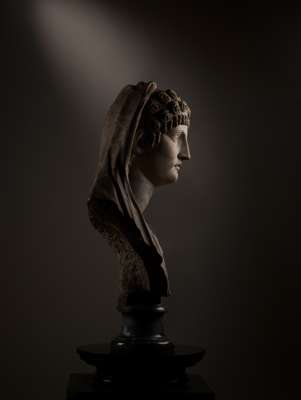
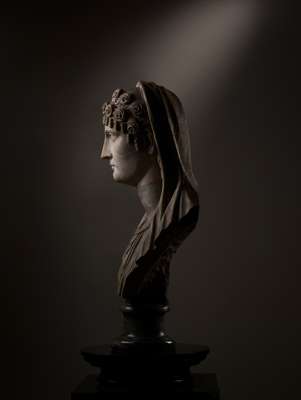
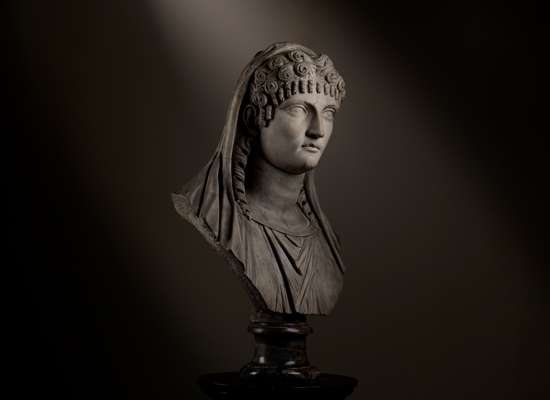
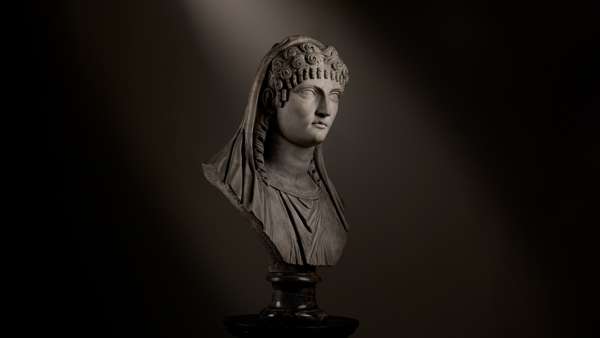
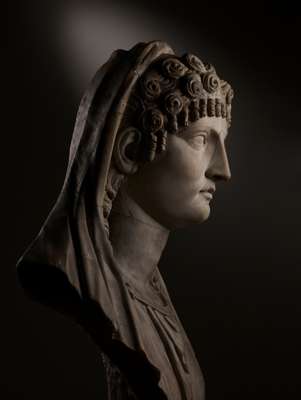
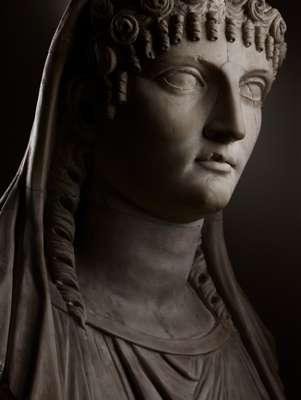
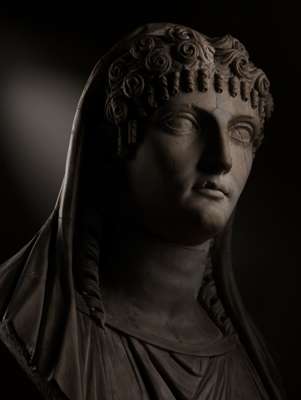
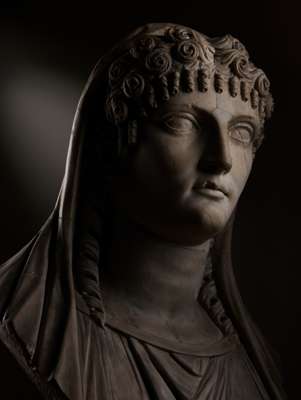
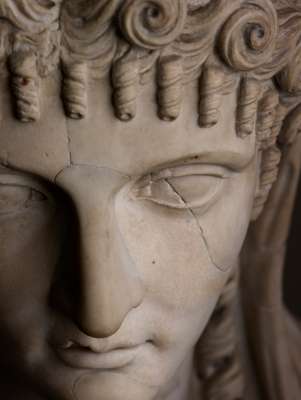
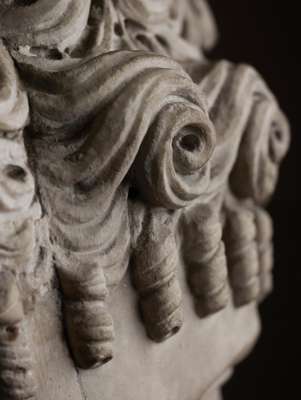
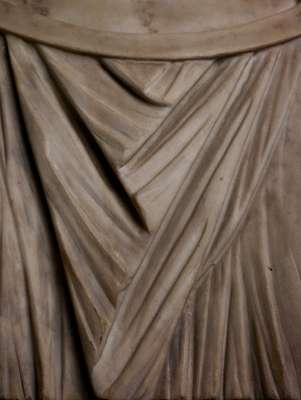
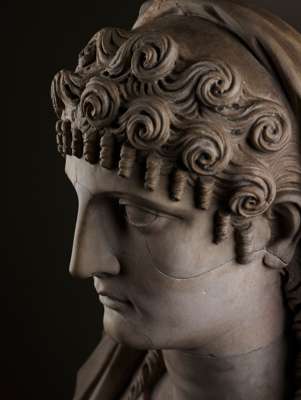
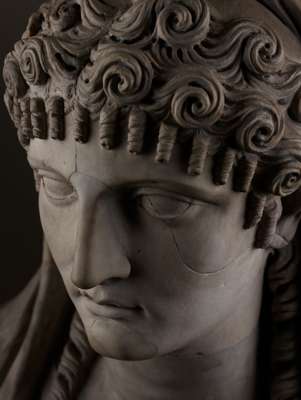
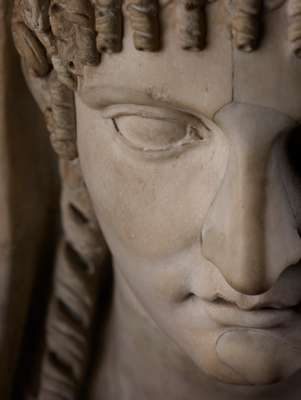
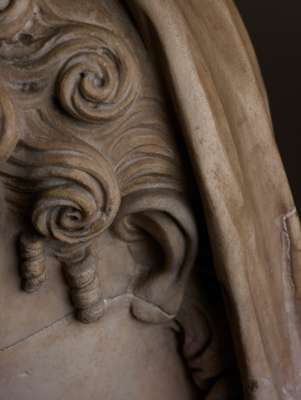





















Classical Ancient Art // Form Through Time
Auction: Classical Ancient Art - 21st March 2024 at 2pm
Description
carved marble, her hair arranged in a corkscrew fringe, with an elaborate coiffure composed of two rows of neatly wound curls and two long strands flowing down next to her neck; clad in a palla draped over the back of her head and over the shoulders, together with an early 19th century red marble plinth [n1]
Dimensions
bust 97cm high
Provenance
Provenance:
John Bligh, 4th Earl of Darnley (1767 – 1831), Cobham Hall, thence by descent
Sotheby’s, London, Cobham Hall, July 22nd 1957, lot 388
Footnote
Note:
The present large portrait of Pompeia Plotina, wife of the emperor Trajan, depicts her as an idealised beauty. Portrait sculpture from this period often reflected the influence of Greek artistic conventions, with an emphasis on ideal proportions and serene expressions. The era also saw a resurgence of interest in traditional Roman values, indeed both Pliny and Dio Chrysostom asserted that Trajan was conservative in nature, acting as a guardian of established norms. As such, idealised portrait sculpture helped to promote these values by portraying imperial figures as exemplars of Roman virtue. By depicting Trajan and his wider family as embodiments of these virtues, artists reinforced the idea of the emperor.
Pompeia Plotina herself was born around 70 A.D. into a prominent Roman family. Little is known about her early life, but she gained prominence when she married the future Emperor Trajan, likely around 100 A.D. As Trajan rose through the ranks of the Roman military and eventually ascended to the imperial throne in 98 A.D., Plotina assumed the role of empress consort.
During Trajan's reign, Plotina was known for her philanthropy and patronage of public works, funding various civic projects and charitable initiatives throughout the empire. Plotina's adherence to Stoic principles, a philosophical school popular among the Roman elite, was notable. She is described as having embraced a life of simplicity and modesty, eschewing the trappings of power and luxury often associated with imperial life.
Following Trajan's death in 117 A.D., Plotina continued to be revered but lived out the remainder of her life in relative obscurity, passing away sometime in the early 120’s A.D.







































